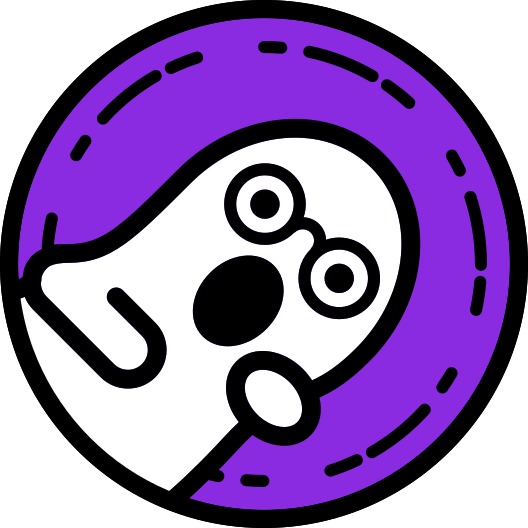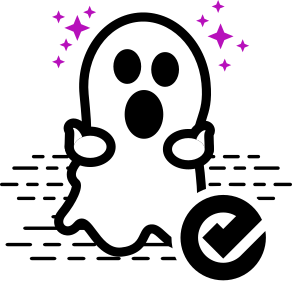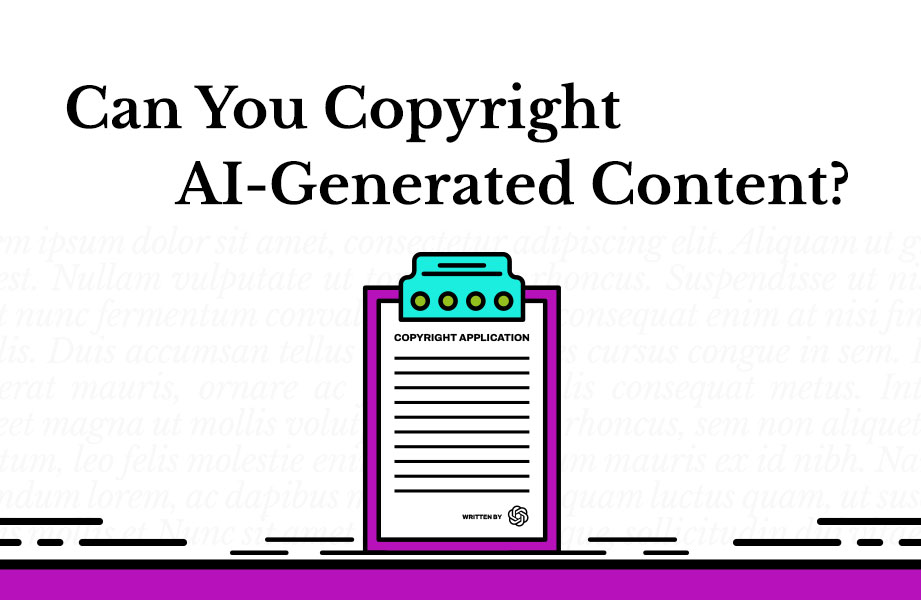This has long been the question with AI-generated content. Can it be copyrighted? Should it be? Even if it could be, who would own that copyright? It’s an evolving field and the landscape has changed dramatically even over the last few months, but a few things remain certain including whether or not you can copyright AI-generated content. Let’s get into it.
Does the U.S. Copyright Office Allow Copyrights on AI-Generated Content?
So far, the short answer has been no. In an official statement, the U.S. Copyright Office had this to say: “Copyrighted works must be created by humans to gain official copyright protection.” They also determined that providing a prompt to an AI is not enough to be considered the “mastermind” behind the creative work.
Even if AI-Generated Content Could be Copyrighted, Who Should Own It?

This is an interesting question, which at least given the current stance of the U.S. Copyright Office may not matter. However, it’s worth exploring in case the U.S. Copyright Office does decide to change its mind down the road.
There are two arguments to be made here. One for the owner of the AI and one for whoever submitted the prompt to generate the art/content. If you asked your friend to write an article, who should own that? Would it be you or your friend? In most cases, you would say your friend, or in this case the AI. No matter how much information you prompted your friend with, it would still be theirs.
The difference comes when there’s an agreement. If you were instead asking your friend to write an article for your use, then you could argue that they are granting that copyright to you. This happens in the workplace all the time.
Of course, the AI isn’t a person. It can’t itself hold a copyright—at least not yet. The company that made the AI wouldn’t have much claim to it either as they merely built the tool and without your use, the content wouldn’t have been created. Much the same way that the maker of a word processor complete with a dictionary, thesaurus, spellcheck, and more does not lay claim to a novel written with it.
Of course, since AI-generated content is still not subject to copyright, none of these arguments have yet been made in court, and terms of use established by these AI companies can further muddy the waters.
ChatGPT vs Google Bard: What We Know
What Can You Copyright When Using AI-Generated Content
Essentially, when you add value to the content that is generated, then you can copyright it, but you are only copyrighting that value. For example, if you gave AI a bunch of prompts to write a novel, and each chapter was itself a unique prompt, you couldn’t copyright each chapter or even the whole novel, but you could copyright the order in which you chose to present the chapters.
Applying this to a website, the content on individual articles or pages that were written by an AI could not be copyrighted. But if you organized it all in a meaningful way—though people would, in theory—be able to use your uncopyrightable AI-generated content in any way that they choose, they would not be able to present it and organize it in the same way.
It’s a small distinction that people are using to try to maintain at least some control over things that they created with extensive help from AI. Ultimately though, it’s still not going to protect your content from being duplicated.
Read More: Is AI Content Writing Bad?
How Would Anyone Prove Your Content is AI-Generated
You may be familiar with the idea of automatic copyright. Though it is true you can apply for a copyright, it’s also true that when something is created it does benefit from an automatic copyright. In other words, when you write an article on your blog, it has an assumed automatic copyright. People generally apply for a copyright just for added protection.

If that is the case, for someone to use your AI-generated content without fear of being pursued under copyright laws, they would have to know that it was AI-generated. There are a few things to note here:
- By the terms of conditions for most AI content generators, you must note that the content you create is AI-generated
- There are numerous AI detection tools, many of which are freely available to use that can identify AI-generated content with some certainty
- AI content generators are building in cryptographic watermarking into the content they generate so that such content can easily be identified
- People often steal content regardless of copyright protections. Usually, a strongly worded email or even a formal cease and desist is enough to get them to stop, but if there is suspicion that the content was AI-generated, then your normal methods may not be enough.
Better Alternative to AI-Generated Content
For now—and we believe for the foreseeable future—good copyrightable content that is search engine optimized and ranks will always be written by humans. It may not be as fast, but it’s close and you can get custom-written content for your site either one-time or on a recurring basis from the writers at Phantom Copy! We connect the right experienced writers with the right clients to make amazing things happen. It’s time for your website to rise up out of the search engine graveyard and start ranking for the search terms that you care about.
